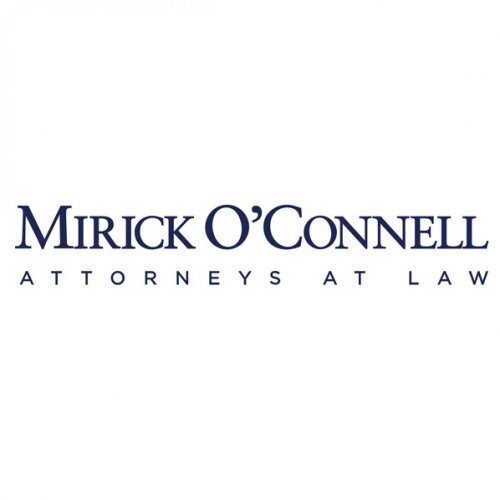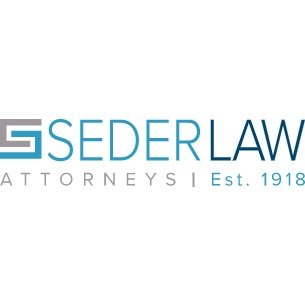Best Patent Lawyers in Massachusetts
Share your needs with us, get contacted by law firms.
Free. Takes 2 min.
Or refine your search by selecting a city:
List of the best lawyers in Massachusetts, United States
About Patent Law in Massachusetts, United States
Patent law in Massachusetts, as in the rest of the United States, is governed by federal law and administered by the United States Patent and Trademark Office (USPTO). A patent grants inventors exclusive rights to their inventions, meaning no one else can make, use, sell, or import the invention without permission for a limited time. Massachusetts is recognized for its vibrant research institutions, innovative companies, and start-ups, making patents an important part of protecting intellectual property in the state. While the federal system provides the framework, there are local considerations and support available in Massachusetts for inventors and patent applicants.
Why You May Need a Lawyer
Navigating patent law can be complex, especially if you are new to the field or unfamiliar with legal procedures. Here are common situations where you might need professional legal help:
- If you want to patent a new invention, process, or design and need help with the application and documentation requirements.
- If you are unsure whether your invention is eligible for patent protection and need an assessment or patent search.
- If your patent is being challenged or you face accusations of patent infringement.
- If you need to enforce your patent rights and consider litigation or negotiation with infringers.
- If you wish to license your patent or transfer ownership and need to draft or review legal agreements.
- If your employer claims rights over your invention developed during work or if you have questions about invention ownership rights.
- If you are involved in joint ventures or collaborations and want to clarify patent ownership from the outset.
Local Laws Overview
Although patents are governed by federal law, Massachusetts offers a robust local ecosystem and support in the field of patents. Here are key aspects to consider:
- Massachusetts has a strong concentration of patent attorneys and agents authorized to practice before the USPTO, many of whom specialize in high-tech, biotech, and medical devices sectors prevalent in the state.
- Local universities and research institutions often have technology transfer offices to help staff and students manage patent filings and related intellectual property matters.
- Disputes over patent ownership, especially involving employee inventions, can be influenced by state contract or employment laws in Massachusetts.
- Massachusetts courts, including the U.S. District Court for the District of Massachusetts, handle federal patent cases arising in the state.
- State resources and innovation centers offer guidance, education, and sometimes funding to help inventors navigate the patent process.
Frequently Asked Questions
What is a patent and what does it protect?
A patent is a legal right granted by the government that gives an inventor exclusive rights to make, use, sell, and import an invention for a certain period, usually 20 years from the application date. It protects new, useful, and non-obvious inventions.
Can I get a patent for my idea in Massachusetts?
You cannot patent an abstract idea alone. You must provide a clear and detailed description of the invention and demonstrate how it works. The invention must be novel, useful, and non-obvious.
Who owns the rights to an invention if I make it while working for a Massachusetts company?
Ownership rights can depend on your employment contract. Many companies require employees to assign rights to inventions made during employment. Check your contract and seek legal advice if uncertain.
How do I apply for a patent in Massachusetts?
All patent applications are filed through the United States Patent and Trademark Office. While there is no separate Massachusetts state patent office, you can work with local patent attorneys or agents for guidance and submission.
How long does it take to get a patent?
The process can take anywhere from one to several years, depending on the type of invention and examination workload at the USPTO.
What does a patent attorney do?
A patent attorney helps with preparing, filing, and prosecuting patent applications. They can also advise on patent strategy, conduct infringement analysis, handle disputes, and draft licensing agreements.
How much does it cost to obtain a patent?
Costs can vary widely. Simple patent applications may cost several thousand dollars in government fees and legal costs, while more complex inventions can cost much more. Attorney fees and drawing costs add to the total expense.
Can I enforce my patent rights in Massachusetts courts?
Patent infringement cases are heard in federal courts. The U.S. District Court for the District of Massachusetts has jurisdiction over patent cases arising in the state.
What is a provisional patent application?
A provisional application allows you to secure a filing date and mark your invention as patent pending for one year, but it does not result in a patent unless you file a formal non-provisional application within that year.
Are there local resources to help inventors with patents in Massachusetts?
Yes. Massachusetts offers a number of university technology transfer offices, inventor organizations, and legal aid clinics that can assist independent inventors and small businesses.
Additional Resources
Here are some helpful resources for patent matters in Massachusetts:
- United States Patent and Trademark Office (USPTO) - for official forms, filing, and information
- Massachusetts Bar Association - for finding qualified patent attorneys
- Local law school legal clinics offering patent law assistance
- Innovation centers and small business development organizations
- University technology transfer offices at MIT, Harvard, and other major institutions
- Boston Patent Law Association and similar professional groups
Next Steps
If you need legal assistance with a patent in Massachusetts, consider taking the following actions:
- Identify and document your invention in detail, including drawings and descriptions.
- Conduct a preliminary search to check for existing patents.
- Reach out to a qualified patent attorney or agent with experience in your technical field and industry.
- Prepare and file your application through the USPTO, with legal guidance to ensure completeness and accuracy.
- Stay in communication with your attorney during the review and prosecution of your application.
- Monitor for potential infringement, and seek legal advice if you need to assert or defend your patent rights.
- Explore local organizations and clinics for guidance and support, especially if you are new to the patent process.
Taking these steps will help you protect your invention and navigate the complex world of patent law in Massachusetts with confidence.
Lawzana helps you find the best lawyers and law firms in Massachusetts through a curated and pre-screened list of qualified legal professionals. Our platform offers rankings and detailed profiles of attorneys and law firms, allowing you to compare based on practice areas, including Patent, experience, and client feedback.
Each profile includes a description of the firm's areas of practice, client reviews, team members and partners, year of establishment, spoken languages, office locations, contact information, social media presence, and any published articles or resources. Most firms on our platform speak English and are experienced in both local and international legal matters.
Get a quote from top-rated law firms in Massachusetts, United States — quickly, securely, and without unnecessary hassle.
Disclaimer:
The information provided on this page is for general informational purposes only and does not constitute legal advice. While we strive to ensure the accuracy and relevance of the content, legal information may change over time, and interpretations of the law can vary. You should always consult with a qualified legal professional for advice specific to your situation.
We disclaim all liability for actions taken or not taken based on the content of this page. If you believe any information is incorrect or outdated, please contact us, and we will review and update it where appropriate.
Browse patent law firms by city in Massachusetts
Refine your search by selecting a city.










